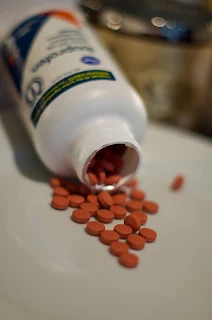Prescribed Medications for Constipation

In case you're experiencing constipation for over a week even after using OTC laxatives, it's important to consult your healthcare provider. Conditions like diabetes or an underactive thyroid may be contributing factors. Many common medications, including antacids, antidepressants, antihistamines, blood pressure medications, pain relievers, and drugs for bed-wetting, can also cause constipation.
Your doctor may adjust doses and timings of OTC products to improve results. If these strategies fail, prescription options are available, though they're more expensive than OTC counterparts.
FDA-Approved Medications for Constipation
Prescription medications for constipation, such as plecanatide (Trulance), tenapanor (Ibsrela), prucalopride (Motegrity), and lactitol (Pizensy), have been approved by the FDA since 2017. These drugs come with a higher price tag—typically around $450-$550 per month without insurance, according to GoodRx.
Secretory Laxatives
Drugs like linaclotide (Linzess), lubiprostone (Amitiza), and plecanatide (Trulance) help increase fluid secretion in the intestines and can also ease stomach pain. These medications are also FDA-approved for treating irritable bowel syndrome with constipation (IBS-C). However, the most common side effect across this class is diarrhea, with Linzess causing serious diarrhea in about 5% of patients.
Other side effects of Amitiza include nausea, which affects around 30% of people at the recommended dosage. Taking the medication with food can reduce this effect.
Osmotic Laxatives
Osmotic laxatives, like lactulose (Constulose, Enulose), work similarly to OTC products like polyethylene glycol, though they are more expensive without offering significantly better results. Few studies have compared prescription and OTC constipation treatments head-to-head, but stimulant laxatives like bisacodyl and sodium picosulfate are ranked higher in terms of effectiveness after 12 weeks.
In some cases, health insurance may dictate which medication is covered, especially for medications like prucalopride, which may only be approved if other treatments have failed.
Conclusion
Prescription medications for constipation can be effective but are often reserved for patients who do not respond to OTC treatments. It's essential to weigh the cost, potential side effects, and insurance coverage before starting these medications.

No comments:
Post a Comment